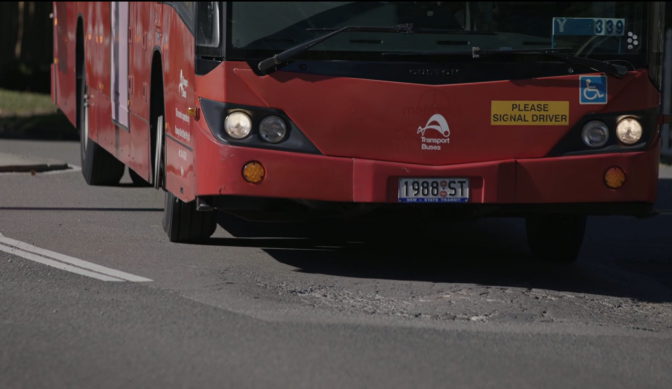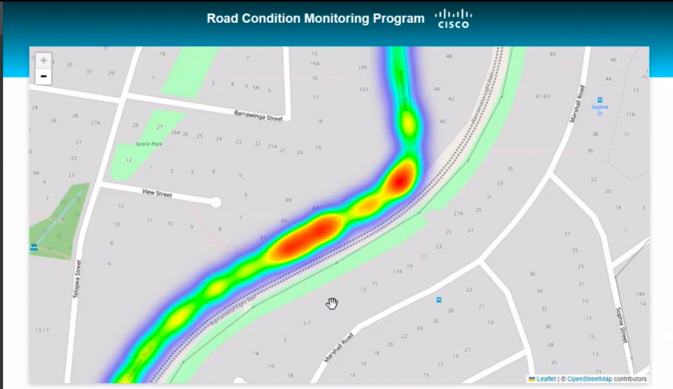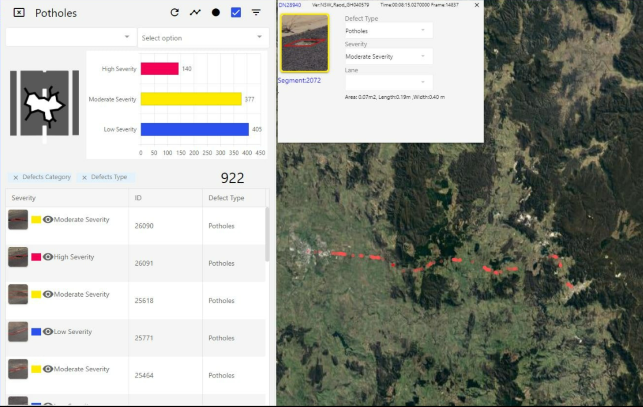How artificial intelligence will help rural road repairs
Angie White
16 July 2022, 10:30 PM
 Warren shire is part of a trial of new technology expected to transform the way councils find, assess and prioritise road damage.
Warren shire is part of a trial of new technology expected to transform the way councils find, assess and prioritise road damage.Warren Shire Council has been selected as one of the Council areas across NSW to trial a new technology titled Asset AI.
The technology, will track and prioritise road repairs, including potentially identifying potholes before they form.
According to Joost de Kock, TFNSW Deputy Secretary Strategy & Technology, Asset AI is an exciting new project that uses artificial intelligence to track road repairs and maintenance.
"The technology will be both pioneering and highly beneficial," he says.
“We will be installing a combination of cameras and sensors to garbage trucks, buses and other council vehicles to help learn more about road conditions in real time.”
“We want to test what data and insights we can get to identify potholes and other defects so we can quickly fix the problems and predict when maintenance is needed,” said Mr. De Kock.

The NSW Government is currently funding a $2.9 million trial involving 32 sensors installed on 32 public transport buses across Greater Sydney area and are now trialling similar efforts on regional roads.
The new technology can be combined with local weather observations to predict the rate of deterioration and streamline how road asset maintenance is prioritised.
Minister for Customer Service and Digital Government Victor Dominello said that people "expect modern service delivery" and that digital products like the ServiceNSW app, Dine & Discover vouchers, Fuel Check and ParknPay have been "embraced" by the people of NSW.
“There will always be cracks in the road and there will always be potholes but with smart tech like this we can predict deterioration, streamline maintenance and get to better outcomes much faster,” he said.

The government expects that the cutting-edge technology will revolutionise road maintenance across the state by mounting cameras and sensors onto vehicles with regular routes, like garbage trucks and public transport buses, to ensure road defects are captured incidentally, including those un-reported by residents.
“This AI technology assesses the captured footage and logs any road defects detected into a database in near-real time, meaning it will find potholes and cracks in the road before they find you,” a spokesperson said.
Outside of the city road data is so far being collected by a utility vehicle mounted with cameras currently scanning 100 kilometres of rural road.
“A ute with the road scanning camera and user interface mounted is travelling across 100 kilometres of regional NSW roads to detect and report on road conditions,” Mr. Farraway said.
“We will have it out collecting data along the Great Western Highway between Lithgow and Bathurst, the Sturt Highway near Wagga Wagga and around Spring Ridge in the Upper Hunter.”

An output report from the regional ute being trialled. PHOTO SUPPLIED.
The technology is being hailed as a "game-changer" which will revolutionise the way local councils assess and audit roads.
Further testing is being rolled out across regional and metropolitan regions including Georges River, Blayney, Central Coast, Liverpool, Wingecarribee, Sutherland, Warren Shire, Liverpool Plains, Griffith, Tamworth, Wollongong, and Murray River Councils in September.
"We have had four meetings with members of Asset AI to gauge how data is currently being recorded and how the system will be implemented,” says Warren Shire Acting General Manager Darren Arthur.
“If this technology works it will be a big benefit to all rural and remote councils."
"With technology advancing every day this will assist many rural communities to improve roads and road safety,” he said.
With the state of many rural and outback roads this technology cannot come quick enough and will be a valuable asset to the safety of rural road users and the viability of our roads for the future.
The Asset AI platform is expected to be live and available to NSW councils next year.




